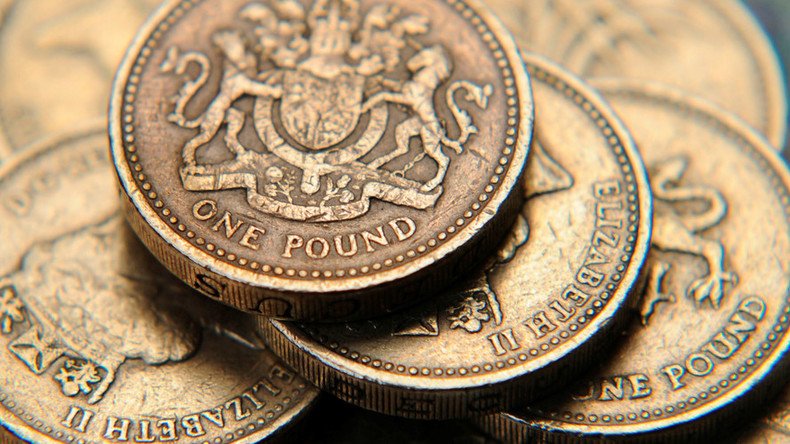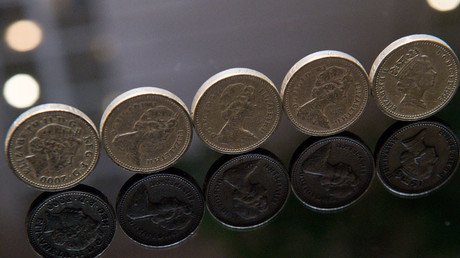Sterling soars after UK court gives Parliament power to block Brexit

The British pound had its biggest rise since August after the UK High Court ruled the government must hold a Parliamentary vote before Prime Minister Theresa May triggers Article 50 to begin the two-year exit from the European Union.
"The news sent the pound roaring through $1.24 before gains were pared as markets digest the news – the fact is no one really knows what the implications of this decision are yet. An appeal is coming in early December, so this is not final. The pound was last at $1.2432, its highest level in almost a month,” Neil Wilson, of ETX Capital told the Guardian.
BRB, just watching the pound rise in realtime on the Bloomberg terminal in response to the Article 50 news. pic.twitter.com/XMLSQ76qgO
— Nate Lanxon (@NateLanxon) November 3, 2016
Trade Secretary Liam Fox said the government would have to wait for an appeal before it rolls out new plans for the Article 50 legal process.
"When we are clear about the position we will adopt, then Article 50 will be triggered, but given the nature of the judgment this morning we will now have to wait for the government's appeal to the Supreme Court," Fox told parliament on Thursday.
The Supreme Court has set aside December 5-8 to deal with the matter.
“It does shift the odds somewhat that the process is going to be delayed and given that Brexit is the issue that has weighed on the pound, it means there’s a bit of a relief rally on that,” John Hardy, head of foreign exchange strategy at Saxo Bank in Denmark told Bloomberg.
Since the UK voted to leave the EU on June 23, the British pound has plummeted nearly 20 percent against the US dollar, consistently hitting 30-year lows throughout the period.
The weak pound has unveiled unpleasant surprises for British consumers, like rising prices, especially in technology. Apple customers in the UK will have to pay as much as 16 percent more for new iPhone models compared to older versions.
In October, Britain's biggest supermarket, Tesco briefly removed some Unilever products during a price dispute. The consumer goods multinational had been trying to raise the prices it charges the country’s four biggest supermarket chains – Tesco, Sainsbury’s, Asda and Morrisons.
Switzerland’s Nestle said it is also looking at increasing prices in the UK, following the steep decline of sterling.
At the same time a weak currency helps British exports. EY (formerly Ernst & Young) expects UK exports will increase by 3.4 percent in 2017, spurred by the cheap pound.
On Thursday, the Bank of England (BOE) maintained the key interest rate at a record low 0.25 percent. The bank also kept government bond purchases at £435 billion and corporate bond purchases at £10 billion.
The regulator also sees inflation in the UK spiking sharply over the next two years, hitting 2.7 percent in a year’s time and 2.83 percent in the second quarter of 2018.
The BOE also upgraded its forecast on the British economy, saying it is now more likely to grow 2.2 percent this year rather than the two percent it had predicted earlier. At the same time the regulator slashed the 2018 forecast to assumed growth of 1.5 percent from 1.8 percent.













